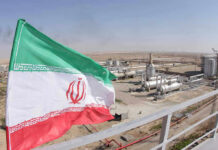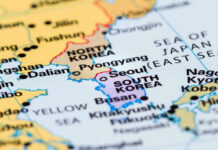Chinese authorities have summoned Walmart executives after the retail giant reportedly asked suppliers to absorb the costs of US tariffs, creating a diplomatic tension with significant implications for global trade relationships.
Quick Takes
- China’s Ministry of Commerce confronted Walmart for allegedly pressuring Chinese suppliers to reduce prices to offset Trump’s tariffs
- Walmart sources approximately 60% of its globally procured products from China and has requested price cuts of up to 20% from suppliers
- Chinese officials warned that Walmart’s actions could disrupt supply chains and harm both Chinese and American businesses
- Few suppliers have agreed to Walmart’s requested price reductions, which come as suppliers already operate on thin profit margins
- Walmart’s shares fell 2.6% following the public confrontation with Chinese authorities
China Takes Action Against Walmart’s Tariff Strategy
The Chinese government has taken the unusual step of publicly confronting Walmart after the American retail giant reportedly asked its Chinese suppliers to absorb the costs of recent US tariffs. According to Chinese state media, Walmart executives were summoned by China’s Ministry of Commerce following complaints that the retailer was pressuring suppliers to reduce prices by up to 20% to offset tariffs imposed under President Trump’s administration. This aggressive cost-cutting demand has sparked tension in a critical trade relationship, as approximately 60% of Walmart’s globally sourced products come from China.
The diplomatic intervention comes after President Trump imposed additional 10% duties on Chinese goods on March 4, following a previous 10% tariff on February 4. Chinese authorities have characterized Walmart’s price reduction demands as potentially disruptive to supply chains and harmful to businesses in both countries. The situation highlights the complex balancing act multinational corporations face when navigating international trade disputes and tariff policies, particularly when operating with significant footprints in competing economic powers.
Supply Chain Tensions and Economic Impact
The confrontation has raised serious concerns about the stability of international supply chains. Chinese state media has been particularly critical of Walmart’s approach, suggesting that pushing suppliers to absorb tariff costs is both unreasonable and potentially destabilizing for global trade. Chinese suppliers, many of whom already operate on razor-thin profit margins due to Walmart’s procurement practices, have largely resisted the retailer’s demands for substantial price cuts, with reports indicating that few have agreed to the requested reductions.
The China Chamber of Commerce for Import and Export of Textiles has emerged as a key advocate for suppliers, urging US retailers to address trade issues fairly. The organization is currently verifying reports of Walmart’s price-cut demands while emphasizing the importance of resolving trade challenges through negotiations based on equality and mutual benefit. Chinese officials have also pointedly reminded Walmart that Chinese consumers have alternatives to the American retailer, a thinly veiled threat that could impact Walmart’s 300-plus stores operating in the Chinese market.
Walmart’s Response and Business Challenges
Following the meeting with Chinese authorities, Walmart executives committed to working with suppliers to protect their interests, while maintaining the company’s stated mission of helping customers save money. The retailer faces a complex challenge in managing increased costs without raising prices for budget-conscious American consumers. This balancing act has become increasingly difficult as tariffs on Chinese goods have escalated, squeezing profit margins throughout the supply chain and raising concerns about potential inflationary impacts.
While Walmart has experienced significant growth in China, with same-store sales increasing notably over the past year, its Chinese operations represent only a small portion of its global revenue. Nevertheless, the retailer’s stock took a hit following news of the confrontation, with shares falling 2.6%. The incident underscores the vulnerability of multinational corporations caught between competing national interests and trade policies, particularly as economic competition between the United States and China intensifies across multiple sectors.
Sources:
- https://www.globaltimes.cn/page/202503/1329972.shtml
- https://www.msn.com/en-us/money/markets/walmart-gets-an-earful-from-china-over-response-to-trump-tariffs/ar-AA1AK9p2
- https://www.cnbc.com/2025/03/12/chinas-commerce-ministry-held-talks-with-walmart-state-media-says.html
- https://nypost.com/2025/03/12/business/walmart-gets-dressing-down-from-china-after-pleading-with-suppliers-to-absorb-tariff-costs-report/











